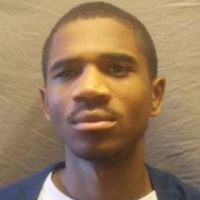Fourteen-Year-Old Who Confessed to Murder, Then Recanted, Is Released After Eight Years
 Davontae Sanford--Credit: Michigan Department of Corrections
Davontae Sanford--Credit: Michigan Department of Corrections
Timothy Williams, © 2016 New York Times News Service
In 2007, Davontae Sanford, a 14-year-old who was blind in one eye and had a habit of telling tall tales, told Detroit police officers after hours of questioning that he had killed four people in a shooting a few blocks from his house.
The teenager, who had quickly recanted, was sentenced to up to 90 years in prison and remained behind bars even after a notorious Detroit hit man admitted to having committed the killings with a second man.
But on Tuesday, after eight years of court battles and a reinvestigation of the case, Brian Sullivan, a Wayne County Court judge, vacated Sanford’s convictions and ordered him released.
“Davontae’s family, friends and supporters knew from the outset that he was innocent and wrongfully convicted,” his family said in a statement Tuesday. “As the judge’s order confirms, Davontae had nothing to do with these murders. We are grateful to those who have fought for many years on Davontae’s behalf and thankful to soon have Davontae home with us.”
The story of how he spent nine years in prison — despite not matching descriptions of the killers — involved a series of grave mistakes and critical oversights on the part of Sanford’s initial lawyer, the trial judge, the Detroit police and Wayne County prosecutors, officials said Tuesday.
Kym Worthy, the current county prosecutor, declined to comment Tuesday, but her office said in a statement that the case against Sanford, who is now 23, had fallen apart after a recently concluded reinvestigation by the state police.
That inquiry determined that James Tolbert, a former Detroit deputy police chief, had contradicted his sworn testimony in which he had said that Sanford “drew the entire diagram of the crime scene, including the location of the victims’ bodies, while being questioned by the police,” according to the prosecutor’s office.
Worthy, who has agreed to file a motion to dismiss all charges and not to retry Sanford, has scheduled a news conference for Thursday morning.
In 2008, Sanford pleaded guilty to four counts of second-degree murder on the advice of his lawyer, Robert Slameka, who has been suspended from practicing law for misconduct at least once, according to state Attorney Discipline Board records.
Slameka, according to Sanford’s current lawyers, did not seek to suppress Sanford’s confession, even though Sanford recanted within a few hours. He said he had admitted to the killings under duress.
The four people killed in the rampage were Michael Robinson, a marijuana grower, and three houseguests. The killers fired a .45-caliber pistol and an AK-47 rifle through the house’s front door and a front window before entering. As they fled, the gunmen exchanged fire with an armed neighbor. The police said they believed the murders were drug related.
The police later found Sanford wandering around the street, his lawyers said. He was charged in the killings despite having changed his account several times and failing to accurately describe what had occurred in the Runyon Street house.
“They said I had blood on my shoes and I should sign it, sign it,” Sanford said, according to court documents.
About two weeks after Sanford was sentenced to a 37- to 90-year prison sentence, Vincent Smothers, a hit man, confessed to the four killings, as well as to eight more. Wayne County prosecutors, however, did not charge Smothers with the Runyon Street killings despite his insistence that Sanford had nothing to do with the crimes.
The State Appellate Defender Office appealed Sanford’s convictions, and the Michigan State Police reopened the investigation. Investigators uncovered numerous inconsistencies, including Tolbert’s testimony. Tolbert, who resigned in February as the police chief of Flint, Michigan, could not be reached for comment Tuesday.
Over the years, Sanford had been represented by legal counsel including the law firm Dykema Gossett, the Michigan Innocence Clinic, the Northwestern Center on Wrongful Convictions of Youth and the Appellate Defender Office.
“We believe a wrong has been righted,” said Heidi Naasko, one of Sanford’s lawyers.
They said his family was looking forward to a reunion with him after his release, which was to happen as early as late Tuesday.
To Learn More:
Is It Really Necessary to Automatically Shackle Juveniles for Court Appearances…and Keep them in Solitary Confinement? (by Noel Brinkerhoff, AllGov)
Juvenile Offenders often Receive less Justice than Adults (by Steve Straehley and David Wallechinsky, AllGov)
New Life for Juveniles with Long Sentences (by Ken Broder, AllGov California)
- Top Stories
- Unusual News
- Where is the Money Going?
- Controversies
- U.S. and the World
- Appointments and Resignations
- Latest News
- Musk and Trump Fire Members of Congress
- Trump Calls for Violent Street Demonstrations Against Himself
- Trump Changes Name of Republican Party
- The 2024 Election By the Numbers
- Bashar al-Assad—The Fall of a Rabid AntiSemite






Comments